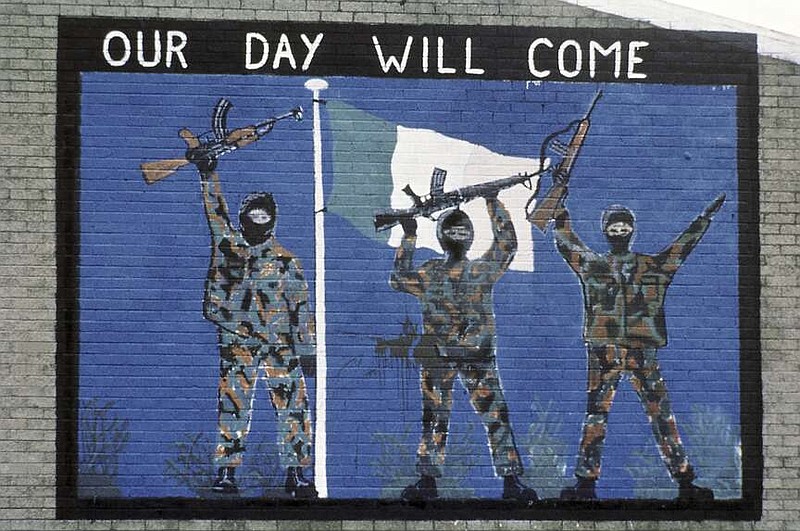LONDON -- A seven-year investigation of a former Irish Republican Army double agent concluded Friday in an interim report that the spy was probably responsible for more deaths than lives saved during Northern Ireland 's three-decade conflict.
The probe, known as Operation Kenova, investigated the actions of "Stakeknife," a senior member of the Irish Republican Army who was passing information to British intelligence during the conflict known as the Troubles.
Former intelligence agents have described Stakeknife as Britain's most centrally placed mole within the IRA. He was allegedly permitted by British Army intelligence officers to interrogate, torture and kill IRA colleagues to maintain his cover as the outlawed group's internal security chief.
It has been claimed that his actions saved countless lives, but Jon Boutcher, the senior police officer who led the investigation, said that was "implausible."
"I think it probable that this resulted in more lives being lost than saved," said Boutcher, the former chief of the Bedfordshire Police force, who led the investigation until he was appointed head of the Police Service of Northern Ireland six months ago. He authored the interim report.
British media identified Stakeknife in 2003 as Belfast IRA veteran Freddie Scappaticci, who denied the allegations until his death last year.
The report by Operation Kenova published Friday did not confirm Scappaticci as Stakeknife as a result of the British government's "Neither Confirm Nor Deny" policy, which prevents the identification of agents.
Boutcher said that in this case, that policy is "no longer tenable" and that he expected the government to authorize the identifying of the spy when a final report is published.
Next month marks 26 years since the Good Friday Agreement largely ended a three-way conflict involving Irish republican and British loyalist militants and the U.K. security forces that left 3,600 people dead, some 50,000 wounded and thousands bereaved.
Operation Kenova, which has lasted seven years and cost about 40 million pounds ($52 million), examined scores of killings and abductions linked to the IRA's notorious "nutting squad," which was responsible for interrogating, torturing and killing people suspected of passing information to British security forces during the conflict.
Scappaticci was linked to to more than a dozen killings involving the unit.
The report concluded that the number of lives he saved were in the "high single figures" or "low double figures and nowhere near hundreds" and that claims that his intelligence saved "'countless' or 'hundreds' of lives are exaggerated." It said there were occasions when preventable crimes, including murder, were allowed to happen and subsequently went unsolved as a result of efforts to protect agents.
Boutcher said that "there were undoubtedly occasions when Stakeknife ignored his handlers, acted outside his tasking and did things he should not have done and when very serious risks were run."
The report also branded as "wild nonsense" claims that Stakeknife met then-Prime Minister Margaret Thatcher and other Cabinet ministers at the height of the Troubles in the 1980s.
The report also called on the United Kingdom and the IRA to apologize to bereaved families.
Northern Ireland Secretary Chris Heaton-Harris said the British government could not comment on the details of the report until the final version was published, but added that Operation Kenova had "gained the trust of many families who have long been seeking answers."
Northern Ireland First Minister Michelle O'Neill -- vice president of Sinn Fein, the party allied with the IRA during the Troubles -- apologized to the victims' families.
"I am sorry for every single loss of life, and that is without exception," she said. "That's for every person who was hurt or impacted by our conflict."
"I think it's important that today as the Sinn Fein new generation, Good Friday Agreement generation, that I would repeat that for those families," she added.
A lawyer representing 12 families directly impacted by the report, said the British state and the IRA were "co-conspirators" in the killings of citizens, and that a public inquiry into the state's penetration of the militant group was now required.
"Many of the cases investigated by Kenova do not feature Fred Scappaticci at all," he said. "He was not the only Stakeknife."

